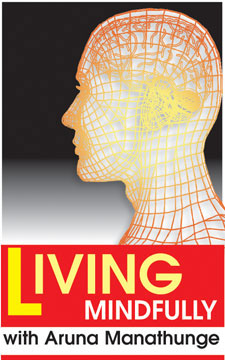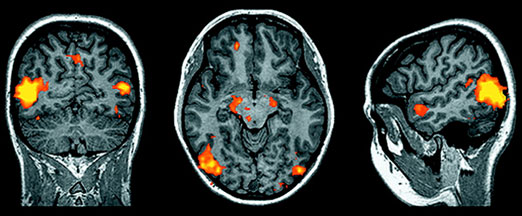|
Benefits of Long-term Mindfulness:
Improving
morality
 The modern movement of Mindfulness was born as a secular practice
about 35 years ago. It didn’t have a religious belief system or a set of
moral regulations as a foundation of its practice. However, the early
western teachers of the secular Mindfulness practice learned their
meditation from the Buddhist Theravada Vipassana teachers/monks and the
Japanese Zen masters. Those early teachers of Mindfulness were extremely
dedicated and some of them lived many years even as monks in Burma
before starting to teach Mindfulness. They are now respectfully called
‘the first generation Mindfulness teachers’ and have practiced
Mindfulness for more than 35-45 years. They set the direction for the
modern Mindfulness movement in the West. One such early teacher is Dr
Jon Kabat-Zinn. The modern movement of Mindfulness was born as a secular practice
about 35 years ago. It didn’t have a religious belief system or a set of
moral regulations as a foundation of its practice. However, the early
western teachers of the secular Mindfulness practice learned their
meditation from the Buddhist Theravada Vipassana teachers/monks and the
Japanese Zen masters. Those early teachers of Mindfulness were extremely
dedicated and some of them lived many years even as monks in Burma
before starting to teach Mindfulness. They are now respectfully called
‘the first generation Mindfulness teachers’ and have practiced
Mindfulness for more than 35-45 years. They set the direction for the
modern Mindfulness movement in the West. One such early teacher is Dr
Jon Kabat-Zinn.
Pioneering Work of Prof. Jon Kabat-Zinn
Jon Kabat-Zinn started out as a molecular biologist but his deep
interest in meditation drew him towards the study of how the mind
facilitates healing. Now a Professor of Medicine Emeritus at the
University of Massachusetts Medical School, Dr Kabat-Zinn has focused
his research on the benefits of Mindfulness meditation for patients with
chronic illnesses and stress related conditions. Thirty-six years ago,
in 1979 he started the currently world famous Stress Reduction Clinic at
the University of Massachusetts to teach sick people non-religious
meditation practices. That eventually lead to the development of 8 weeks
MBSR (Mindfulness Based Stress Reduction) program at the center and it
has become the most widely practiced secular Mindfulness program in the
world today.
Unexpected Results at MBSR Programs
The majority of Dr Kabat-Zinn’s patients were those who were given up
by the conventional doctors as ‘hopeless’. Most of his patients were in
deep physical pain or depression and were not responding adequately to
conventional medical treatments. Such patients started to recover after
the 8-weekMBSR program to the surprise of the conventional doctors.
However, to Dr Kabat-Zinn it was not a surprise as he expected the
improvements due to mind body connections. He explained that when the
patients applied the wholesome practice of Mindfulness as a habit, over
time positive results could be gained physically and even emotionally.
 The
improvements of the patients were not the unexpected. The unexpected
result was the gradual observation over the years that the long term
practice of MBSR Mindfulness program could lead to improved morality
among the participants. Some of his patients were abusively violent due
to mental stress or physical pain. With continued practice those
patients became non-violent and non-abusive and became better spouses
maintaining faithful relationships,better parents and even gave up
alcohol and other addictions. These practitioners started to demonstrate
improvements in their morality – even when they were not religious
people. The
improvements of the patients were not the unexpected. The unexpected
result was the gradual observation over the years that the long term
practice of MBSR Mindfulness program could lead to improved morality
among the participants. Some of his patients were abusively violent due
to mental stress or physical pain. With continued practice those
patients became non-violent and non-abusive and became better spouses
maintaining faithful relationships,better parents and even gave up
alcohol and other addictions. These practitioners started to demonstrate
improvements in their morality – even when they were not religious
people.
Over the years they observed that this interesting aspect became even
more pronounced whenever the practitioners came from religious cultural
backgrounds. So those with Hindu backgrounds became better Hindus and
Muslims became better Muslims and Buddhists became better Buddhists
after long term practice of this secular Mindfulness.
There had been concern among certain religious leaders about the
absence of emphasis on morality or ethics in secular Mindfulness. For
instance, most Buddhist traditions require vows of higher ethical
behavior prior to training in meditation. Such formality is extremely
helpful in providing a structure of safety for monastics and within
residential meditation retreats.It is also useful for purifying the mind
in preparation for deeper practice. However, it is equally possible to
integrate a foundation of ethical behavior into the practice of
Mindfulness itself. The emphasis in secular Mindfulness is on learning
and developing Ethical behavior through first-hand experience and
insight.
 In
secular Mindfulness, the practitioners are taught over 8 weeks’ period
with an explicit emphasis on using one’s inner and outer life as a
laboratory to explore as to which behaviors lead to suffering and which
leads to real happiness. This could be the reason for the improvements
of morality and ethics among the practitioners of secular Mindfulness. In
secular Mindfulness, the practitioners are taught over 8 weeks’ period
with an explicit emphasis on using one’s inner and outer life as a
laboratory to explore as to which behaviors lead to suffering and which
leads to real happiness. This could be the reason for the improvements
of morality and ethics among the practitioners of secular Mindfulness.
Stemming from these results it could be even argued that Mindfulness
and Morality have a bi-directional potential for supporting each other.
Aruna Manathunge has practiced Mindfulness for over 42 years. During
the past 7 years he has closely followed the development of Mind Science
in the Western world. He has had a long career as the Country Head of
Sri Lanka and the Head of the Indian Sub-Continent of an American
Pharmaceutical Multinational company. Presently Aruna conducts Coaching
in Mindfulness to Schools and Companies. Aruna can be contacted at
[email protected] |

